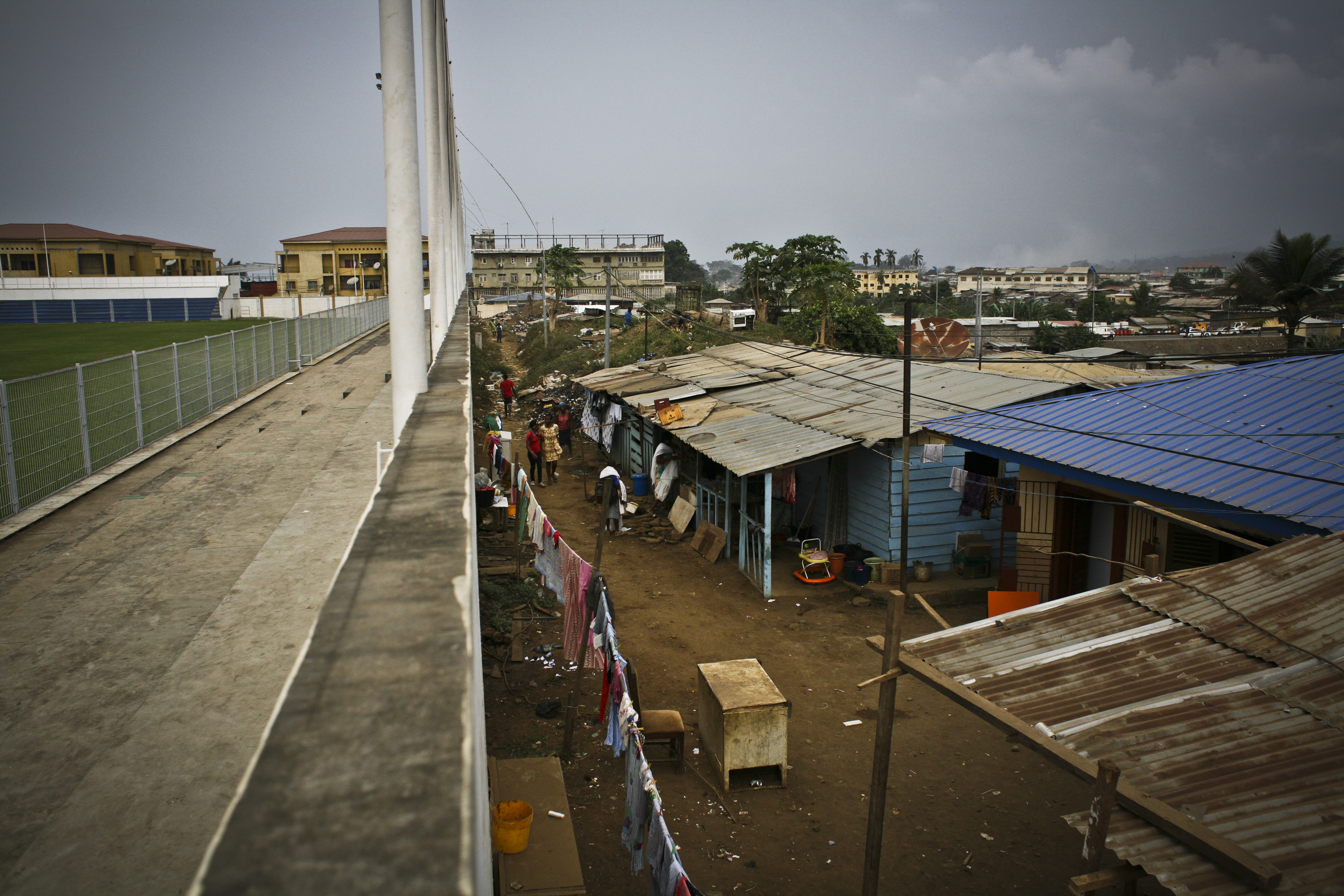
The first president of Equatorial Guinea, Francisco Macias Nguema, ruled this small West African nation with an iron fist. During his presidency the country was popularly known as the "Auschwitz de Africa." Of Equatorial Guinea's 300,000 citizens, it is estimated more than 80,000 were either executed or went into exile. On August 3, 1979, the current president, Teodoro Obiang Nguema Mbasogo, overthrew Macias in a bloody coup d'etat. As nephew of the overthrown president and head of both the country's National Guard and the infamous Black Beach prison, Obiang was very familiar with the previous regime's reign of terror. While Obiang promised reform and an end to political and social repression, many would argue he's failed to live up to his assurances of change.
The 1982 constitution, written after Macias's fall, guarantees basic political freedoms and protects against abuses of power. However, in 2008, the UN's Special Rapporteur on torture, Manfred Nowak, found that torture was still being systematically used by government officials to extract confessions. Nowak also reported that corporal punishment in the country's prisons was widespread and that conditions in said facilities "…amount to inhuman and degrading treatment." In February 2012, physician and human rights advocate Dr. Wenceslao Mansogo was detained in what appears to be another example of the regime's political targeting of its critics. The doctor is one of few Equato-Guineans to actively investigate and document individual cases of torture.
In theory Equatorial Guinea is an electoral democracy; however in practice the country has repeatedly been condemned for its fraudulent elections by international organizations such as the United Nations, Amnesty International and Freedom House. In the 2009 presidential election Obiang won 95.4% of the vote amid widespread allegations of fraud, political intimidation, and manipulations of electoral results. Contrary to the constitution the majority of state power rests in the hands of Obiang. A 2003 fact finding report by the International Bar Association found "…the executive exercises considerable control over both the judiciary and legislature." The report also raised serious concerns about the requirement for judges to pledge allegiance to the regime and the use of military judges in civilian courts.
Since the 1995 discovery of oil off Equatorial Guinea's shores, human rights in the country have improved little. Today, one could say the government exploits poverty to kill hope, as effectively as it uses torture to get confessions. Once a country based on subsistence agriculture, petroleum has converted Equatorial Guinea into a mono-economy. Obiang as sole arbiter of national affairs has effectively guaranteed his place as 'president for life' through a system of patronage and dependency. Equatorial Guinea is consistently ranked one of world's most corrupt countries by Transparency International in its annual Corruption Perceptions Index. In 2006 the World Bank estimated 76.8% of the population was living in poverty, yet Forbes magazine has repeatedly ranked Obiang among the top 10 wealthiest heads of state.
For those who are close to the regime or dependent on its networks of patronage the country's overwhelming poverty is the best leverage the regime has to maintain obedience.
Marcial Abaga Barril, an activist in the opposition, says the regime has perfected "the slow death." Barril has been detained arbitrarily and tortured on multiple occasions, most recently in November 2011. But of equal importance, Barril has never had a full time job in his adult life. He has been blacklisted by the regime because of his political activism. He is dependent on remittances from family abroad and the seasonal jobs he has been able to get with foreign companies working in Equatorial Guinea. With no economic base, Barril acknowledges that the opposition has suffered dearly at the hands of the current regime. The combination of a history of impunity for the abuses of Obiang and his regime, and the exploitation of poverty to create political submission, means the challenge is great for those seeking reform in Equatorial Guinea. Those in power have made abundantly clear their intentions to cling to their positions of privilege, at whatever the cost. Unfortunately it appears the country is closer to the feudal state the regime's critics claim it to be than the electoral democracy that Obiang proclaims.


